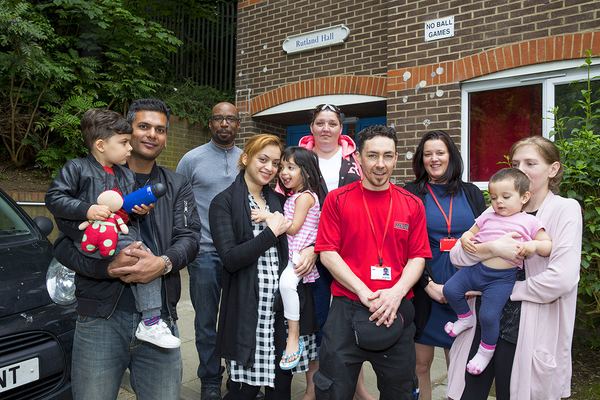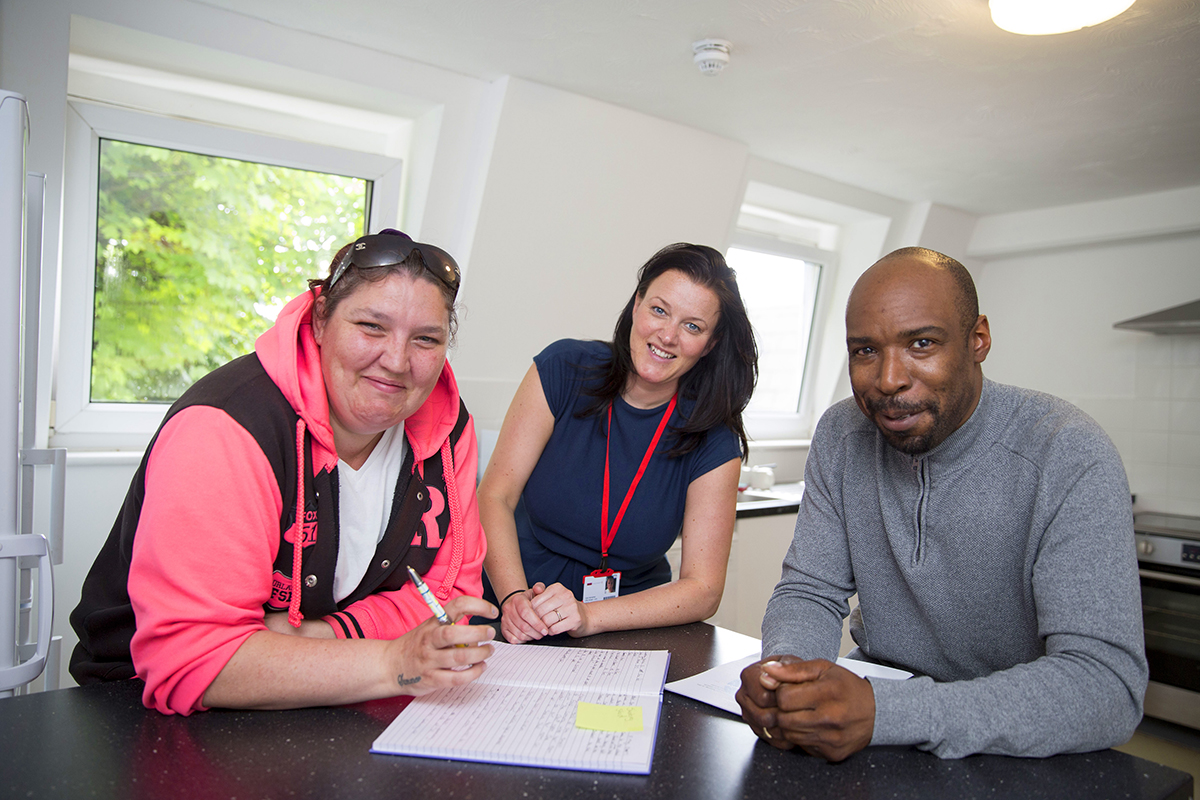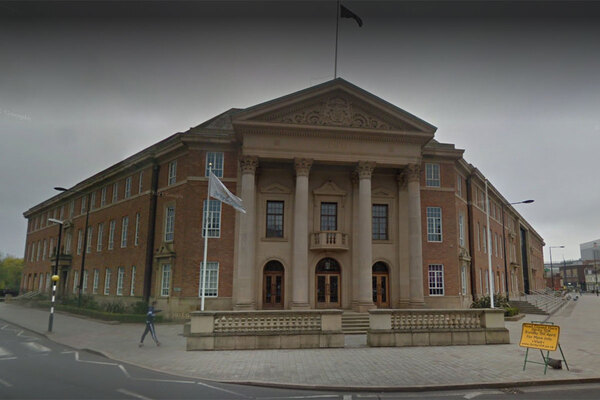A much-needed solution
How two different approaches are lowering the costs of placing homeless people in temporary accommodation
Article written in partnership with:

Luton Borough Council
Life skills package
Issue: Homeless people housed in expensive B&B accommodation
Solution: Dedicated homeless accommodation
Cost reduction: £15,000 a year per household
A former student hall of residence in Luton is providing a surprising and innovative solution to rising levels of homelessness.
Since January last year Luton Borough Council has been placing homeless families in Rutland Hall, which is owned and run by Mears, instead of sending them to bed and breakfasts in the Bedfordshire town.
Unlike B&Bs, the residents of the block have the use of kitchens kitted out with all the amenities they might need, such as fridges and washing machines. They also have access to a wide range of support services and training to improve their chances of finding a permanent place to stay.
Ian Cartmell, head of housing operations at the council, credits Rutland Hall with helping to end Luton’s reliance on expensive B&B accommodation.
“Historically Luton has had lots of families in bed and breakfast. We’ve gone from around 250 people in B&Bs down to two,” he explains. “This project has played a massive role in reducing the number of households in B&Bs.”
The council was paying on average around £34,000 a year for each homeless household in B&Bs, whereas it only costs £13,900 to house them in Rutland Hall. “It is cost-effective for us,” he says.
Local authorities like Luton have to make the sums add up because more and more people priced out of the housing market are turning to councils for help.
“Homelessness is going up because property prices have gone up 13% over the past couple of years and people cannot afford the rent,” explains Mr Cartmell. “There is also a shortage of social housing stock. Right to Buy is on the increase, so we haven’t got as much stock as we had.”
It’s not just Rutland Hall; there are other alternatives that are helping to reduce the cost of homelessness. Mears provides a ‘life skills’ support package to residents in Luton, which covers advice on things like finding work, education and finances, as well as practical help like CV writing or applying for housing.
“Mears upskills people so that when they leave they’re in a position to look for an assured shorthold tenancy, bid on a council tenancy, or go back to friends and family if they have had a relationship breakdown,” says Mr Cartmell.
Luton’s temporary accommodation team still play a management role and remain ultimately responsible for the people housed in the hall. “We do the day-to-day allocation of rooms. We also manage misbehaviour,” he says.
The block itself is very flexible and can be used to accommodate different sized families, lone parents and individuals. “They have interchangeable doors so you have three rooms in a row that can become a three-bed,” he says.
The scheme’s scope and wraparound care make it unusual and it may be one of the first in the country. “I haven’t heard of it being used elsewhere,” says Mr Cartmell.
Indeed, it has been so successful Luton is considering introducing another 90-room scheme elsewhere in the area.
Bromley Council
Joint approach
Issue: Growing numbers placed in temporary accommodation
Solution: 400 homes purchased and refurbished
Cost reduction: £6,500 a year per household
Bromley, on London’s south-east fringes, has been finding it harder and harder to help homeless people.
The private landlords traditionally used by the council have been tempted by inner-London authorities offering more money. This has left Bromley with few options locally.
Stephen Carr, Bromley’s Conservative council leader, says: “The outward migration from inner London to outer London has increased pressures in Bromley.”
This has come at the worst possible time, with demand growing. In 2011 Bromley placed 420 families in temporary accommodation - now there are 1,500.
Mr Carr describes homelessness as “an extremely significant problem” for Bromley and blames a mixture of austerity and welfare reform.
Bromley itself has been forced to place people outside the borough, in some cases as far away as Medway in Kent. This has proved to be very expensive. “It is costing us £6m to put people up in bed and breakfasts,” Mr Carr notes.
But the council is not sitting on its hands. Last summer it formed a unique joint venture with Mears to buy properties to provide more temporary accommodation. The project, named ‘More Homes’, will purchase and refurbish 400 properties up to the government’s Decent Homes Standard.
Families stay in the homes for two to three years, as opposed to a couple of days or a couple months in B&Bs.
“It gives them stability and better quality housing. It allows people to have a bit more choice so they can stay near to schools or work,” explains Mr Carr.
It also saves the council money. “It costs the council on average £7,500 a year to put a family up in B&B accommodation. In these properties, it costs £1,000 a year,” says Mr Carr.
The £80m venture is funded by a privately placed bond structure. Investors stand to gain a return on their investment while Bromley stands to save on its B&B costs and benefit from the capital appreciation.
The division of labour is straightforward. Bromley allocates the properties to homeless families while Mears sources and manages them.
Bromley has built up a strong working relationship with Mears. “You need a very clear understanding with your partner. We had to be very explicit about what we wanted from the deal. And they in turn were very honest about what they could bring to the table. It was a perfect match,” says Mr Carr.
Mears brought the experience and capacity of a registered provider.
“They had the skills to bring the properties up to a decent standard very efficiently,” he remarks.
The council is keen to expand the scheme, which is already generating interest from other local authorities. “We hope by the end of the year to get to 400 properties,” he says.
Bromley believes the “model is the first of its kind” and benefits both parties.
Mr Carr says: “We have a partnership with Mears, who are the property managers and agents. And the local authority gets the stability and improvement in housing conditions for local people.”









